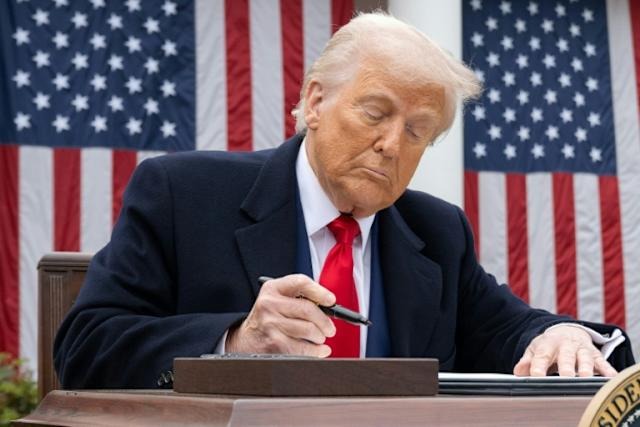
The global economy is once again in chaos. Asian stock markets collapsed on Monday. The cause is the abrupt imposition by US President Donald Trump of harsh tariffs and Chinese retaliations.Writers fear this tension is the forebear of an impending trade war on the horizon.
Tokyo's Nikkei index fell by about 7 percent in morning trading. Taiwan's market fell by about 10 percent, South Korea's Kospi index fell 5.5 percent, and Singapore fell 8.5 percent. Australia's ASX 200 index fell to a more than one-year low. This meltdown swept across Asia. It is believed that the impact of the massive meltdown on Wall Street in morning trading on Friday was replicated in Asia.
In the US alone, the stock market lost over $6 trillion in a single day. As of Friday, the S&P 500 index dropped 6 percent, the Dow Jones Industrial Average dropped 5.5 percent, and the Nasdaq Composite index dropped 5.8 percent. Analysts have projected that $9 trillion have been erased in the global market in only two days, akin to the 2008 financial crisis.
The primary cause of this crisis is the reckless tariff policy of the Trump administration, in which the government added a 34 percent tariff to all Chinese commodities. Likewise, China has indicated that the same proportion of the tariff will apply to all the goods of America from April 10. Because of this, there has been immense uncertainty within the world trading system.
While that happened, the crude oil dropped below $60 for the first time since 2021. The dollar also dropped to 145.98 against the yen, indicating that investors are seeking safe haven as well.
Even in this case, Trump himself is hopeful. "Sometimes you have to take bitter medicine to heal the US economy," he said. "Every country is desperate to make a deal with us now," he added further.
White House Economic Council chief Kevin Hassett stated that over 50 nations have now come to the United States with offers for negotiations.Even Vietnam asked for 45 days of extension. Treasury Secretary Scott Besant replied that, "Trump is exerting maximum strategic leverage at this moment. Let's wait and see what other countries emerge."
Federal Reserve Chairman Jerome Powell warned that the trade tensions would increase inflation and lower economic growth . But Trump responded on Twitter, "Lower rates, Jerome, and stop the politics!"
Market experts say the most affected are those companies which have strong ties with China. For instance, DuPont stocks fell 12.7 percent when Chinese authorities launched an antitrust probe into it. GE Healthcare shares fell by 16 percent, and its major portion of revenue comes from China.
Meanwhile, UK Prime Minister Keir Starmer said the following, "The world as we knew it has changed." In his view, future stability will be rooted in bilateral agreements and alliances.
World leaders are preparing to sit down with the Trump administration. Israeli Prime Minister Benjamin Netanyahu has flown into Washington for emergency meetings. Australian Prime Minister Anthony Albanese stated, "We cannot prevent a global crisis, but we can prepare."
The global economy is in limbo. If things remain this way for such many years, the effect will not only manifest itself in the stock market but in the lives of normal individuals—particularly on job opportunities and commodity prices.